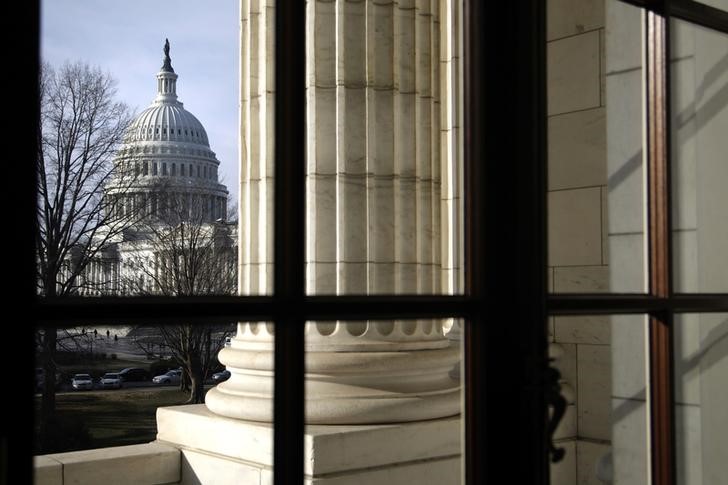Who is Kevin Hassett? Wolfe looks at the Trump ally tipped to become Fed Chair.
WASHINGTON (Reuters) - The U.S. Senate on Wednesday passed the National Defense Authorization Act, or NDAA, which sets policy for the Pentagon, for the 64th straight year, sending it to the White House for President Joe Biden's signature.
Because it is one of the few major bills that becomes law every year, lawmakers use the NDAA as a vehicle for a range of initiatives, some more directly related to the military than others.
Here is a look at some notable provisions of the 1800-page Fiscal 2025 NDAA.
WHAT IS THE TRANSGENDER PROVISION?
The bill bans the military health program, TRICARE, from covering some gender-affirming care for the transgender children of service members if it could risk sterilization, a provision that caused some Democrats to vote no in the Senate and in the House.
The measure was denounced by groups that support transgender rights, but Democrats who backed the bill said the provision was far more narrow than some Republicans had wanted. For example, during negotiations on this year's bill, some Republicans had pushed to ban TRICARE from covering gender-affirming care for adults.
President-elect Donald Trump's Republicans have made opposition to the rights of transgender people a focus of so-called "culture war" politics, using it successfully as a wedge issue during the 2024 U.S. elections.
COUNTERING CHINA, BOLSTERING TAIWAN
The NDAA steers resources toward countering China, seen as the biggest geopolitical threat to the United States.
Among other things, the bill authorizes $300 million to help Taiwan acquire capabilities from anti-ship missiles and radars to coastal and missile defense, and measures to enhance diplomatic and economic backing for Taiwan.
It also includes new restrictions on China and Chinese businesses, including requiring reports on China's economic outlook, biotechnology industry and synthetic opioids.
The bill also extends bans on the military purchasing Chinese products, adding bans on drone technology as well as garlic in military commissaries.
MIDDLE EAST
The measure authorizes $500 million for U.S.-Israel missile defense, including funds for Israel's Iron Dome, David's Sling and Arrow systems. It also increases and expands to $80 million from last year's $50 million authorization for U.S.-Israel anti-tunneling cooperation.
And it requires the Secretary of Defense and director of the Defense Intelligence Agency to provide Israel with defense intelligence and support of Israel's pursuit of Hamas and the capture or killing of Hamas officials.
QUALITY OF LIFE AND PAY RAISES FOR THE TROOPS
The NDAA authorizes an unusually high 14.5% pay increase for the lowest-ranking troops, and 4.5% for the rest of the force, recognizing that many military families have been forced to rely on food stamps and other forms of public assistance to make ends meet.
The bill also authorizes $3 billion to improve military housing, and it will expand child care benefits, which military leaders had described as an obstacle toward recruitment.
